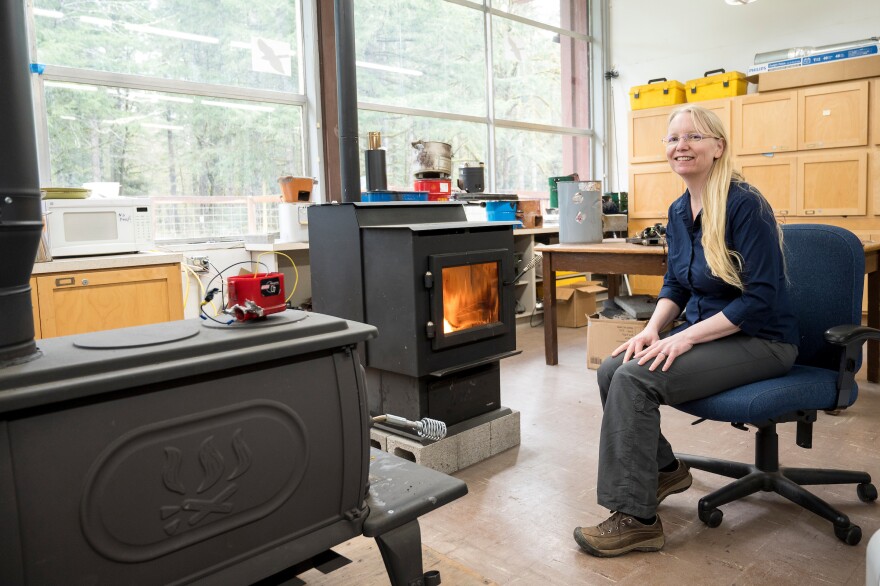Winter means wood-burning for many rural and Native American communities, who often rely on stove-generated heat. But that can mean harmful emissions. A $2.5 million grant will help Oregon State University researchers explore cleaner burning stoves.
The U.S. Department of Energy’s Bioenergy Technologies Office awarded the four-year grant. Nordica MacCarty of OSU’s College of Engineering told KLCC that work will start next summer.

“And ultimately end up sharing what we’ve learned, so that the techniques and strategies that we’ve learned to reduce wood smoke will then be applied in a variety of settings and through various industrial manufacturers as well.”
In its press release, OSU says there are an estimated 6.5 million inefficient stoves in the U.S. according to the EPA. Most are older models that predate federal clean-burning standards.
"In addition to requiring more fuel, a problem from both an economic and sustainability standpoint, inefficient stoves can have a large, negative effect on chimney safety and air quality," the release adds. "The EPA notes that 20 stoves that don’t burn cleanly can combine in a winter to emit more than a ton of fine particle pollution, or PM2.5 (the 2.5 refers to the maximum width of the particles in microns)."
MacCarty said they’re exploring the use of turbulent jets of air to make woodburning stoves burn cleaner, even if they are overfilled or using wet wood. This can provide immediate and long-term benefits for underserved populations.
“Cleaner air and better health in communities that rely on wood for heat.”
Project partners include OSU-Cascades in Bend, and the Nez Perce Tribe based in Idaho.
Copyright 2021, KLCC.



